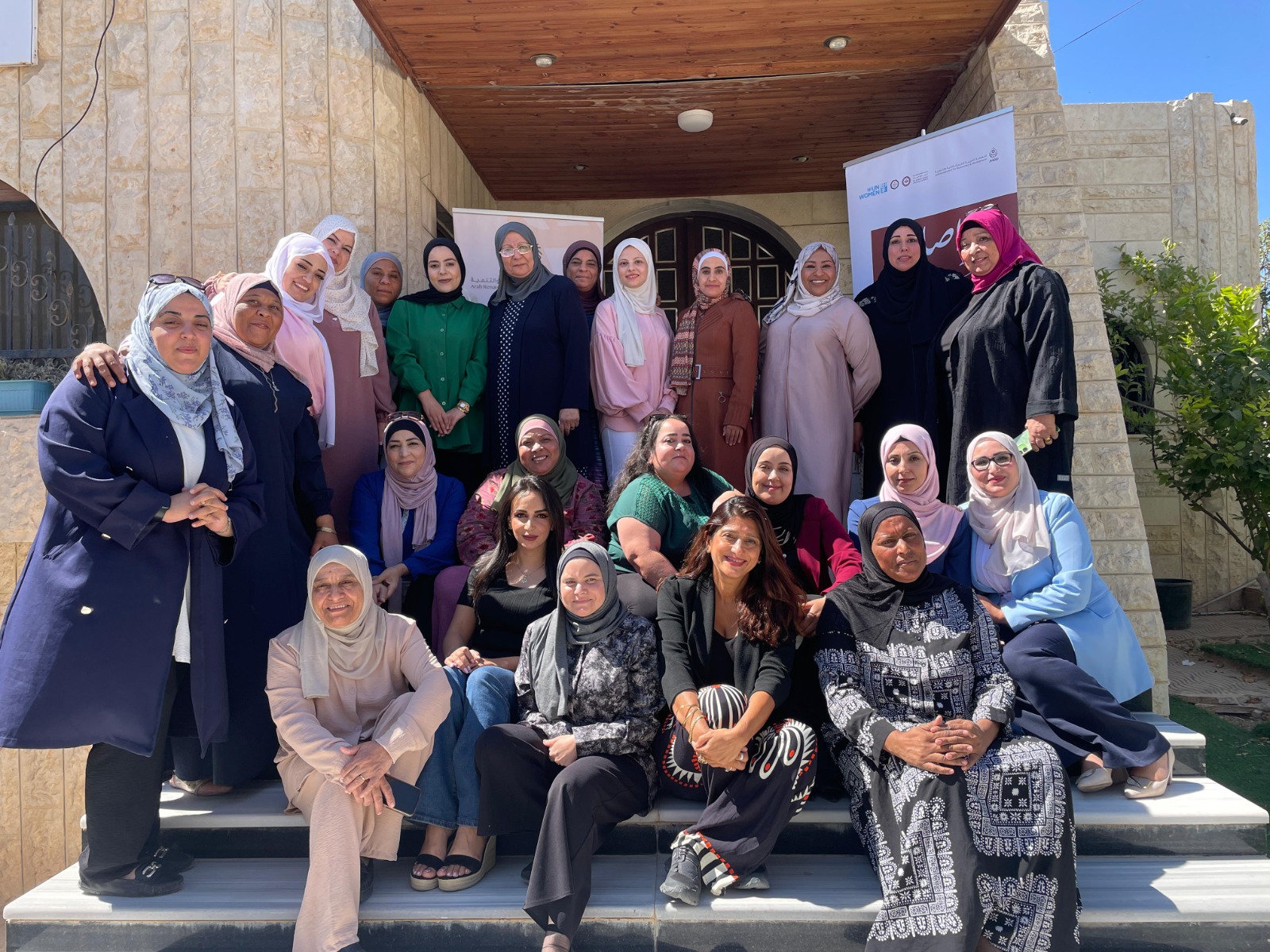The Arab Renaissance for Democracy and Development (ARDD), in partnership with UN Women, has successfully concluded a three-month capacity enhancement program under the Tawasol Initiative: Strengthening Crisis Management under the Women, Peace and Security (WPS) Agenda in the South, held between August and October 2025.
Titled “Amplifying Community Impact through Localized Implementation of UNSCR 1325 for Sustainable Growth,” the training program brought together representatives from 20 women- and youth-led community-based organizations (CBOs), including those working with persons with disabilities (PWDs) across southern Jordan. The training enhanced participants’ skills in crisis management, social cohesion, and peacebuilding, supporting their leadership roles in community response and resilience.
“Through a phased approach, starting with institutional strengthening, advancing to leadership and networking, and culminating in advanced technical training, we built a foundation where women-led CBOs can better lead the change through impactful strategies, ensuring crisis response and peacebuilding are driven by those who know their communities best: women at the heart of change” said Zainab Al Khalil, Program Manager at ARDD.
Empowering Women in Crisis Contexts
Women-led organizations continue to play a crucial role in addressing social, economic, and environmental challenges in southern Jordan. The training program sought to equip women leaders with the tools, knowledge, and confidence to lead local crisis responses, promote inclusive decision-making, and advocate for gender-responsive recovery policies. The interactive and experience-based learning methodologies ensured relevance and inclusion, with accessibility measures in place to allow the participation of persons with disabilities.
“The training came at exactly the right time for women leaders who need this kind of knowledge, especially the final module on the Women, Peace and Security agenda,” said Maha Obeidin from Tafileh Women’s Charity Association. “At a time when local organizations are facing growing social and economic pressures, the sessions provided the practical tools and confidence needed to respond effectively and promote women’s participation in peacebuilding. These topics are not often explored in depth among women leaders in the South.”
Participants described the program as transformative, practical, and deeply relevant to their community contexts. “The training was very useful because it was realistic, interactive, and focused on quality rather than quantity,” said Dr. Alia Odeh Nassar Abuhilal from Farha Women’s Charity Association – Aqaba. “The facilitator’s storytelling approach made complex ideas accessible and engaging.”
“The first training changed me completely. I entered as one person and left as another,” said Zeina Al-Dughaymat from Ghor Al-Haditha Women’s Charity Association – Southern Ghor. “It taught me how to evaluate my organization and think outside the box. I learned that nothing is impossible—I am the decision-maker.”
Localizing the Women, Peace and Security Agenda
The initiative is part of ARDD and UN Women’s ongoing collaboration to implement the Jordanian National Action Plan (JONAP) for UNSCR 1325, emphasizing the localization of the WPS agenda and the centrality of women’s leadership in peacebuilding and crisis management.
“By strengthening the institutional foundations and leadership of women-led CBOs, we are ensuring that crisis response and peacebuilding are driven by those who understand their communities best—women at the heart of change,” added Al Khalil.
About the Tawasol Initiative or Network
Tawasol is a platform of women-led and youth-led community-based organizations, including those working with persons with disabilities (PWDs, working across Jordan’s southern governorates to enhance crisis management, social cohesion, and women’s leadership. Through collaboration, advocacy, and capacity building, Tawasol advances the localization of the Women, Peace and Security agenda and promotes inclusive, community-driven development.



